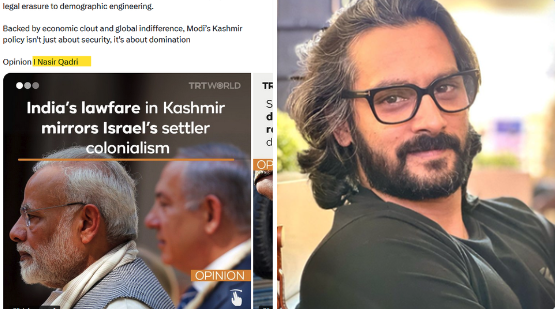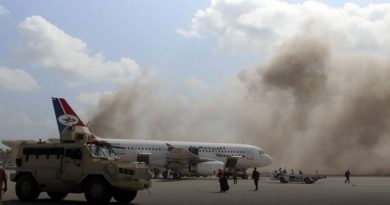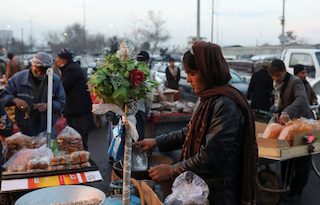Turkish TRT Media Under Fire for Promoting Anti-India Narratives via Pakistani Writers
New Delhi — Open Source Intelligence (@OSINTWa_com) has revealed troubling new details about Turkey’s state-run broadcaster, TRT World, serving as a platform for anti-India propaganda amid renewed tensions between India and Pakistan.
According to the intelligence report, TRT World has been providing repeated space to controversial figures linked to Pakistan’s Kashmir campaign, most notably Nasir Qadri—an Islamabad-based lawyer who heads the Legal Forum for Kashmir (LFK). Qadri, who once travelled extensively within India, is now operating from Pakistan’s capital, spearheading global campaigns to malign India’s military and government under the guise of human rights advocacy.
Observers say Qadri’s rise in the propaganda machinery is part of a broader, coordinated effort involving Turkey, Pakistan, and organizations linked to the Muslim Brotherhood. These connections came into sharper focus during the Russell Tribunal on Kashmir held in 2022—a politically charged event co-organized by actors from all three camps.
In a significant flashpoint noted by the report, Legal Forum for Kashmir, in collaboration with UK-based law firm Stoke White, ran a highly orchestrated Twitter campaign in January 2022 targeting key Indian leaders. The online offensive singled out Union Home Minister Amit Shah and then-Chief of Army Staff, General Manoj Naravane. Hashtags and posts flooded social media, attempting to paint India’s security operations in Jammu and Kashmir in a negative light.
This digital campaign conveniently coincided with the Russell Tribunal, raising questions about its timing and coordination. While the event branded itself as an independent tribunal on Kashmir, critics argue it was little more than a political showpiece aimed at India, leveraging platforms and personalities closely aligned with Ankara and Islamabad.
Analysts suggest TRT World’s coverage fits into Ankara’s broader geopolitical ambitions. Turkish President Recep Tayyip Erdoğan has, in recent years, amplified his rhetoric on Muslim causes, often positioning himself as a global defender of Muslim rights. In that narrative, Kashmir finds repeated mention—frequently aligned with Pakistan’s stance.
Qadri’s Legal Forum for Kashmir, though presented as a legal advocacy group, has drawn scrutiny for functioning as a front for anti-India narratives. Its frequent engagement with Turkish media outlets and joint events with organizations sympathetic to the Muslim Brotherhood only deepen suspicions about its true objectives.
What makes the situation more concerning, according to @OSINTWa_com, is the blurring of lines between journalism and state-driven messaging. When a state-funded broadcaster like TRT World gives repeated coverage to one-sided narratives without space for opposing views, it raises red flags about media neutrality and intent.
Experts urge caution and call for international media watchdogs to investigate the growing weaponization of public broadcasters in geopolitically sensitive regions. “This is not journalism—it’s soft warfare,” one analyst noted.
As India and Pakistan navigate yet another phase of tense relations, observers argue that platforms like TRT World must be held accountable for enabling biased discourse that could inflame public sentiment and undermine regional stability.



